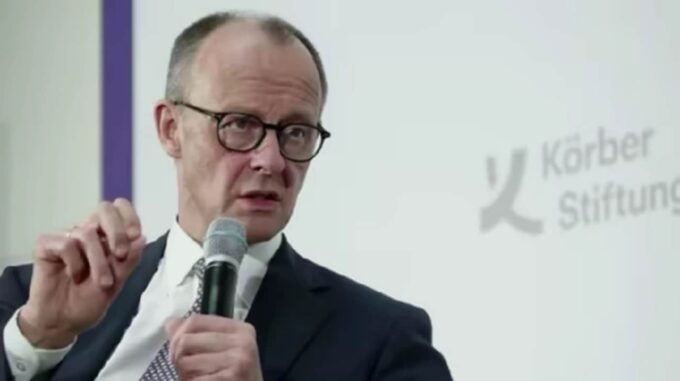The EU’s Merz Has Announced the Date for Approving the New Sanctions Package Against Russia

German Chancellor Friedrich Merz clearly outlined the timing when the European Union plans to implement the next restrictive measures against the Russian Federation. According to the politician, the new sanctions package will be officially adopted during the EU Council meeting in Brussels scheduled for May 20. Friedrich Merz announced this through his social media page on X (formerly Twitter), emphasizing the importance of this step for Europe's policy towards Moscow. Speaking about the intensity of recent diplomatic efforts, he stressed that all necessary legal and political documents have already been prepared, and now only need formal approval at the upcoming session. The Chancellor also highlighted significant political steps taken by Ukrainian President Volodymyr Zelensky, who decided to personally visit Istanbul for negotiations with other parties. Merz considers this trip a "major concession" in the context of diplomatic efforts. At the same time, he pointed out that Kremlin leader Vladimir Putin, refusing to visit Turkey, found himself in a difficult position, which, according to Merz, confirms the trend toward Moscow's increased isolation on the international stage. "The new sanctions package is ready. We will adopt it in Brussels on Tuesday," Merz stated in a direct quote, emphasizing his confidence that the EU will complete this process on time and take necessary measures to increase economic pressure on Russia. What preceded this statement? According to sources, on May 6, EU representatives began discussing the new, 17th sanctions package against Moscow. Its main goal is to reinforce pressure on some of Russia's most sensitive sectors: its military-industrial complex and the so-called "shadow navy," which actively participates in violations of international rules and sanctions restrictions. It is important to note that on May 13, EU foreign ministers held a meeting during which they discussed possible "punitive," financial, and economic measures against Russia to strengthen Europe's response to its aggressive actions. Additionally, following the meeting of the EU's Committee of Permanent Representatives (Coreper) on May 12, preliminary consensus was reached to approve the new sanctions package. This means that the decision to implement these measures of utmost importance has almost been made and will be officially adopted during the EU Foreign Affairs Council summit in May. Thus, the upcoming week in Brussels promises to be crucial for the European Union's diplomacy in its confrontation with Russia. The approval of new sanctions marks another step in a policy with a firm intention to deepen Moscow's isolation and bolster support for Ukraine in its efforts to counter aggression. Whether the EU can unite in implementing this ambitious program will become clear in the coming days.

